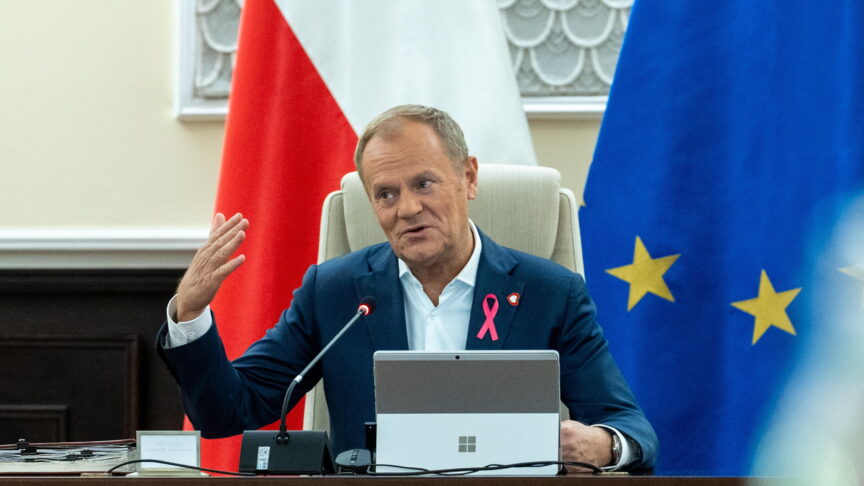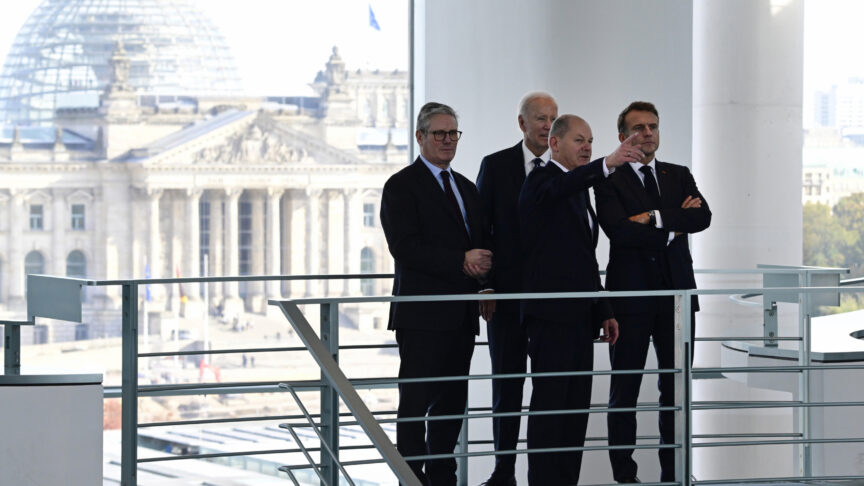Peace, or more Euro-squabbling?
The debate over the Lisbon treaty should focus more on what the treaty will mean for the EU’s work abroad
This article originally appeared in the Guardian on 25 July 2008.
Ignore for a moment the European Union’s latest difficulties following the Irish referendum, and instead focus on places that have real crises, and where the EU is making a real difference in resolving them.
Too often overlooked among the Euro-debates over the Lisbon treaty has been any sense of what changes proposed by the treaty would actually mean for the most important work the EU is doing outside its own borders.
The EU has had 21 missions in conflict zones and fragile post-conflict countries, bringing vital military support and civilian expertise to a range of troubled areas in efforts to stabilise and rebuild fractured societies.
Examining just a few of the nine past missions and 12 current ones gives you an idea of the scope and importance of the EU’s growing foreign policy role.
In Afghanistan, the EU police mission has been establishing a sustainable and effective civilian policing arrangement under Afghan ownership. In Chad the Eufor bridging mission, with strong Irish participation, is protecting civilians who would otherwise be at the mercy of marauding rebels and bandits.
In 2003, the EU military operation Artemis created a secure environment in the eastern Democratic Republic of Congo town of Bunia, allowing the return of refugees and stopping a descent into further mass violence. Two ongoing European Union missions in the Congo continue to support reform and restructuring of the security sector, both vital if that country is to finally break free of its years of deadly conflict in which millions died.
In Kosovo, the mission Eulex launched in February will be instrumental in helping the judicial and law enforcement authorities to create a multi-ethnic justice system.
Perhaps the EU’s greatest recent success has been in Bosnia & Herzegovina, the recipients of the first ever European security and defence policy mission.
Since the beginning of 2003, the EU has been monitoring, advising and inspecting Bosnian police forces while a much larger EU military force has maintained security. On June 16, the EU signed a stabilisation and association agreement with the country, the first step towards eventual membership in the European Union.
Yes, all these missions have their weaknesses – the one in Kosovo, for example, was supposed to have been operational by now but is complicated by disagreements at the UN security council. However, in the end, they have all been worthwhile and have shown how much the EU has to offer the world in terms of both hard and soft support for conflict prevention and resolution efforts.
As in other policy areas one of the main criticisms of the EU’s capacity to prevent and resolve conflict outside its borders is that its institutions are unwieldy and inefficient. The Lisbon treaty, or more appropriately the reform treaty, still holds some of the answers.
The inefficient six-month rotating presidency of the council of the European Union would no longer have responsibility for foreign affairs, which would be handed over to the new high representative for foreign affairs and security policy, providing continuity where there are now fluctuating national priorities.
The high representative would head the new external action service and be vice-president of the commission, bringing together the different strands of EU external policy currently under the council and commission, which today sometimes have a gap between them considerably larger than the 50m-wide Rue de la Loi that separates their buildings in Brussels.
On issues in which member states have agreed to allow the EU to speak on its behalf, the EU would be granted the legal personality to do so. There would also be improved voting procedures on matters of external action that, while not removing the possibility of a member state veto, would enhance the use of qualified majority voting, thereby accelerating the process.
The treaty also provides for permanent structured cooperation in defence matters, where member states with more advanced capabilities and commitments that want to work together are able to do so without a minimum threshold of participants, but with approval from the council by a qualified majority. Overall, the reforms in the treaty streamline the multiple processes and institutions, increasing the EU’s efficiency in conflict prevention and resolution work. In short, that means lives saved.
The European Union is itself, of course, one of the most successful conflict-resolution mechanisms ever devised, making mass violence between once habitually warring European states now unimaginable. It has managed to spread that wisdom and experience abroad in numerous missions, and it would be very sad if further progress was halted or delayed by prolonged internal bickering over the Lisbon treaty.
Chris Patten is a former EU Commissioner for external relations and co-chair of the board of the International Crisis Group. He is also a member of the European Council on Foreign Relations.
The European Council on Foreign Relations does not take collective positions. ECFR publications only represent the views of their individual authors.


